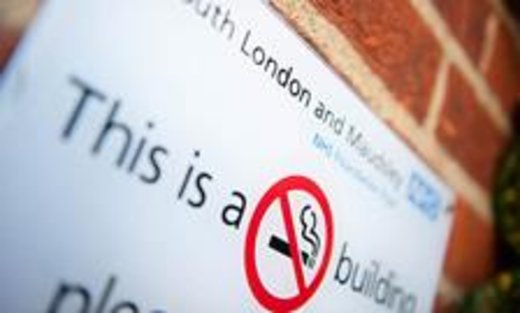Smoking ban reduces hospital violence
Research has revealed a 39% drop in physical assaults following the introduction of a smoke-free policy at South London and Maudsley NHS Foundation Trust.
Published in the Lancet Psychiatry, researchers from  King’s College London, South London and Maudsley NHS Foundation Trust, University of Nottingham and University of York, analysed incident reports of physical assaults 30 months before and 12 months after the smoke-free policy was introduced on 1 October 2014.
King’s College London, South London and Maudsley NHS Foundation Trust, University of Nottingham and University of York, analysed incident reports of physical assaults 30 months before and 12 months after the smoke-free policy was introduced on 1 October 2014.
During the study period, there were 4,550 physical assaults, with 2,916 towards staff and 1,634 between patients. Researchers found a 39% reduction in the number of physical assaults per month following the introduction of the policy. This was after accounting for general trends and a range of factors that could also have influenced the rates of violence.
Smoking within psychiatric hospitals has long been a cultural norm, and is thought to be a major reason why people with mental health problems die 15-20 years earlier than the general population. Despite this, smoke-free policies have previously been hampered by concerns, especially from staff, that physical violence will increase.
Dr Debbie Robson, Senior Post-Doctoral Researcher in Tobacco Addiction at King’s College London, said:
We believe there are a number of possibilities why rates of violence actually decreased. Historically, cigarettes have been used as a tool to manage patient behaviour and patients often coerce their peers into handing over cigarettes. To support the introduction of the smoke-free policy South London and Maudsley has invested in new treatment pathways for smokers and a staff training programme, which may have contributed to changing the culture of how staff and patients interact.
This study was undertaken at the National Institute of Health Research (NIHR) Collaboration for Leadership in Applied Health Research and Care (CLAHRC) South London, where a team of researchers are investigating ways to help people with severe mental illness to improve their physical health.
King’s Health Partners’ Addictions Clinical Academic Group covers illicit drugs, alcohol and tobacco addiction. We are one of the largest providers of NHS addictions services in the UK.
Read more on the King’s College London website.